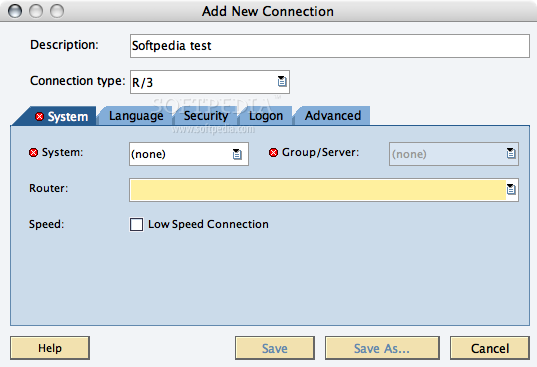In previous versions of Mac OS X, Java will ordinarily be installed by default. In any case, to make sure you have the most recent version of Java in Mac OS X, use Software Update; see ARCHIVED: For Mac OS X, how do I obtain and install system software updates? All current web browsers, including Safari, Firefox, and Chrome, support Java. Mac OS X Version 10.6 and below. Use Software Update available on the Apple menu to check that you have the most up-to-date version of Java 6 for your Mac. Java 7 and later versions are not supported by these older versions of Mac OS X. If you have problems with Java 6, contact Apple Technical Support. Mac OS X 10.6 and below: Apple's Java comes pre-installed with your Mac OS. Mac OS X 10.7 (Lion) and above: Java is not pre-installed with Mac OS X versions 10.7 and above. To get the latest Java from Oracle, you will need Mac OS X 10.7.3 and above. If you have Java 7 or later versions, you will see a Java icon under System Preferences.
The Java Embedding Plugin is a utility that allows other webbrowsers than Apple's Safari to use the most recent versions of Javaon Mac OS X. When used together with an updated version of Mozilla'sMRJ Plugin Carbon (included in this distribution), the Java EmbeddingPlugin's functionality is currently available to recent versions ofFirefox, Seamonkey and Camino. But in principle any web browser coulduse one of the Java Embedding Plugin's two APIs to add support forJava 1.4.2, J2SE 5.0 and (where available) Java SE 6.
The current version (0.9.7.5) of the Java Embedding Plugin and theMRJ Plugin JEP requires Mac OS X 10.4.X or higher. Older versions(0.9.6.5 and earlier) required Mac OS X 10.2.8 or higher.
- Download Java for OS X directly from Oracle. Get the latest version If an app or webpage you want to use asks you to install Java software, you can download the current version of Java for OS X directly from Oracle's website.
- As would be expected, Safari uses the MacOS S installation of Java. Firefox does not. Mozilla includes the Symantec Java Virtual Machine with Firefox. It should surprise no one that the Symantec JVM has a very bad reputation. However, there is an Internet Plugin that allows Firefox to use the MacOS X JVM instead.
The Java Embedding Plugin has for the last few years been bundledwith current Mac distributions of all the Mozilla.org browsers --Firefox, Seamonkey and Camino. So if you're using one of thesebrowsers, you don't need to install the Java Embedding Plugin. Butyou may wish to replace the bundled version of the Java EmbeddingPlugin with a more recent version.
For more information see the Java Embedding Plugin Readmeor go to the SourceForge project site.
If you use the FireFox browser, you may deal with several problems while loading a page with Java Uploader or Downloader.
When you are faced with any difficulties, first you should visit the www.java.com/verify web page and ensure that you have the latest Java version by following the update instructions that will appear on the screen.

If the problem still occurs, you may need to deal with one of the following issues:
The article below describes solutions for all these problems.
A plugin is needed to display the content
While opening a page with Java Uploader or Downloader, you may see the following warning message and the popup dialog which will appear after clicking the button selected with the red rectangle:
The message means that a proper version of Java plugin is not installed. Before Firefox can run Java applets you need to install and enable the Java plug-in as the following steps describe:
- Click the Install Java button in the popup dialog:
Alternatively, you can visit the https://www.java.com/en/download/mac_download.jsp page to download the Java.
- Follow instructions on the Java downloading and installation page.
- After the Java has installed, you need to restart your browser.
- If the Java applet does not still works and you see the same warning message, this means that the Java content is disabled in the browser. You should open the Java control Panel → Security tab and set the Enable Java content in the browser checkbox:
The plugin is disabled
When you open a page with the Java applet you may see the following message:
In that case you need to enable the Java plug-in in the Add-ons Manager tab as the following steps describe:
Download Mozilla Firefox For Mac Os X 10 6 8
- Open the Add-ons Manager tab and select the Plugins panel.
- Choose the Java applet plug-in.
- Select Always Activate in its dropdown menu:
- Restart the page.
The plugin is blocked
Firefox version 26 blocks Java software on all websites by default. Thus if you see the dialog box which asks for permission to activate the Java applet, or no message at all, click the plugin icon in the address bar and choose Allow and Remember in the popup dialog. This will allow the plugin to launch:
When you click Allow and Remember Firefox adds the current webpage to an internal whitelist, whereby the Java applet will run automatically in the future without further intervention. If you click the Allow now button, you will encounter this problem again when visiting other web pages that use Java.
The Java applet does not upload files
If a web page with Java Uploader or Downloader displays correctly, but does not upload or download chosen files, this may mean two things:
- You are using outdated Java (below Oracle's security baseline).
- Java security settings are set too high.
The first thing you should try is to make sure that you have the latest Java. You can do it on http://www.java.com/verify.
Java For Firefox Mac Os X 10.10
If you have the latest Java but it still does not work, check your security level:
- Open Control Panel → Programs → Java
- In the Java Control Panel choose the Security tab and move the security level cursor to High or lower:
- Click the Ok button and restart your browser
SecurityException and a warning message
While opening a page with Java Uploader or Downloader you may see the following security dialog with the warning message in the yellow box:
And after you run the applet, you see the SecurityException message instead of the uploader.
This means that the web page uses the old version of Upload Suite or File Downloader. You should report this security dialog as a potential problem to the support team of the website you are working with.
Application Blocked by Security Settings - expired certificate
Download Java For Os X

While opening a page with Java Uploader or Downloader you may see the error message saying 'Your security settings have blocked an application signed with an expired or not-yet-valid certificate from running':
This message means that an outdated version of the uploader is used on the website.
The best solution is to contact the website owners and let them know about the problem so that they updated their copy of the uploader. However if you need to upload files urgently, the following temporary solutions are possible:
- Switch to Internet Explorer. An alternative ActiveX-based uploader is typically used on Internet Explorer and it is not affected by this issue.
- Reduce Java security level to Medium. Open Control Panel → Programs → Java and change the slider to Medium. Don't forget to restart the browser.
Warning
Reducing the security level may make your computer more vulnerable and it is not recommended until emergency. It is recommended to return the security level back to High after the upload is complete.
Firefox Mac Os X Download

Firefox For Mac Os 10.5
If you have 'no valid license key' message, no need to buy or download anything from Aurigma! Contact the website developer support team to resolve the problem.

Comments are closed.